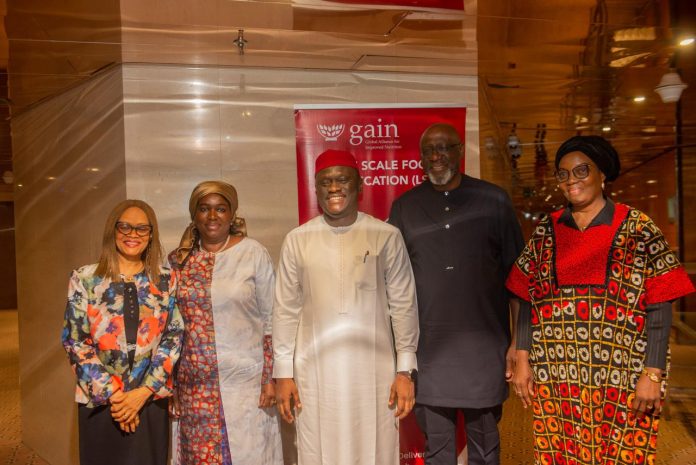…SON, NAFDAC, FCCPC, GAIN Pledge Stronger Collaboration to Tackle Micronutrient Deficiencies
Key regulatory agencies and development partners have reaffirmed their commitment to strengthening food fortification and tackling micronutrient deficiencies in Nigeria, emphasizing the need for improved compliance and regulatory oversight.
This was the focus of the Annual Joint Regulatory Agencies Directors General Roundtable Meeting, held on Thursday in Abuja, bringing together stakeholders to discuss strategies for enhancing food fortification efforts.
SON’s Commitment to Fortification Compliance
In his keynote address, Dr. Ifeanyi Chukwunonso Okeke, Director General of the Standards Organisation of Nigeria (SON), stressed the critical role of food fortification in improving public health outcomes.
“SON remains committed to championing national and regional efforts to address micronutrient deficiencies. Through factory-level monitoring, we enforce fortification guidelines to ensure compliance, particularly in essential food vehicles such as sugar, vegetable oil, margarine, and flour,” Dr. Okeke stated.
He highlighted the Digital Fortification Quality Traceability Plus (DFQT+) initiative, which enhances supply chain transparency and regulatory oversight, and Nigeria’s leadership role in the West African Fortification Alliance to harmonize policies across the region.
GAIN Calls for Stronger Stakeholder Collaboration
Also speaking, Dr. Michael Ojo, Country Director, Global Alliance for Improved Nutrition (GAIN), acknowledged Nigeria’s progress in fortification compliance but pointed out that significant challenges remain.
“This Roundtable provides a critical platform for collaboration and strategic alignment among key stakeholders. Today, we will review and adopt revised Terms of Reference, launch the LSFF Innovations Fund, and secure commitments for the next phase of the DFQT+ project,” Dr. Ojo stated.
He assured that GAIN remains committed to supporting the Nigerian government through regulatory innovations, policy alignment, and resource mobilization to drive fortification efforts forward.
NAFDAC Reaffirms Support for Food Fortification Program
On her part, Prof. Mojisola Adeyeye, Director-General of the National Agency for Food and Drug Administration and Control (NAFDAC), reaffirmed the agency’s commitment to Nigeria’s food fortification program, calling for stronger collaboration among regulatory agencies to ensure compliance.
Represented by Mrs. Eva Edwards, Director of Food Safety and Applied Nutrition at NAFDAC, she commended the joint regulatory initiative, which has been in place since 2022 to advance Large-Scale Food Fortification (LSFF) efforts in Nigeria.
“We are all acutely aware of the challenges with food and nutrition security in Nigeria. These times call for urgent and meaningful action from all stakeholders,” she stated.
While noting progress in the mandatory fortification of wheat flour, sugar, and vegetable oil over the past 20 years, she emphasized that compliance remains a work in progress. She urged greater regulatory oversight and industry commitment to ensure fortified foods meet required standards and reach vulnerable populations.
“At NAFDAC, we remain fully committed to our responsibilities in enforcing the mandatory food fortification program. Strengthening compliance is key to achieving improved nutrition and public health outcomes in Nigeria,” she added.
FCCPC Stresses Consumer Protection in Fortification Efforts
Meanwhile, Mr. Olatunji Bello, Executive Vice Chairman of the Federal Competition and Consumer Protection Commission (FCCPC), represented by Dr. Nkechi Mba, Director of Quality Assurance and Development, emphasized the importance of consumer protection in food fortification.
“Food fortification is necessary to correct micronutrient deficiencies, also known as hidden hunger. FCCPC supports this initiative and the collaboration between SON, NAFDAC, and development partners like GAIN and the Gates Foundation,” Dr. Mba stated.
She added that FCCPC actively monitors food fortification at the household level to ensure that Nigerian consumers receive adequately fortified food.
Stakeholders Agree on Strengthening Regulatory Innovations
As Nigeria continues its fight against malnutrition and micronutrient deficiencies, stakeholders at the roundtable agreed that effective collaboration, strengthened regulatory frameworks, and technological innovations remain key
to achieving sustainable food fortification.

